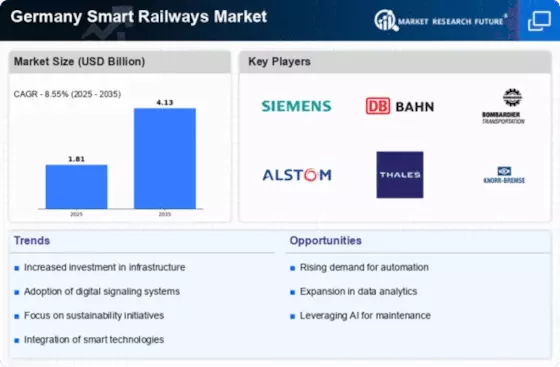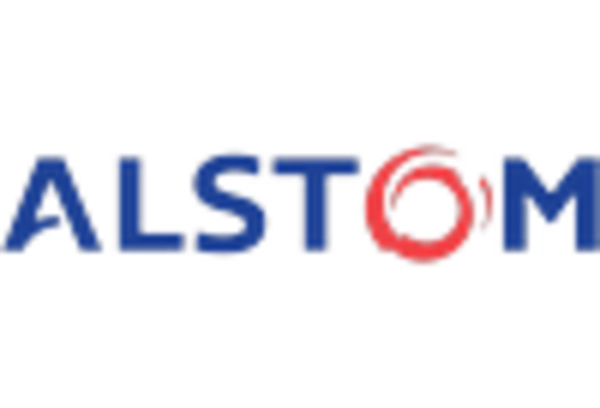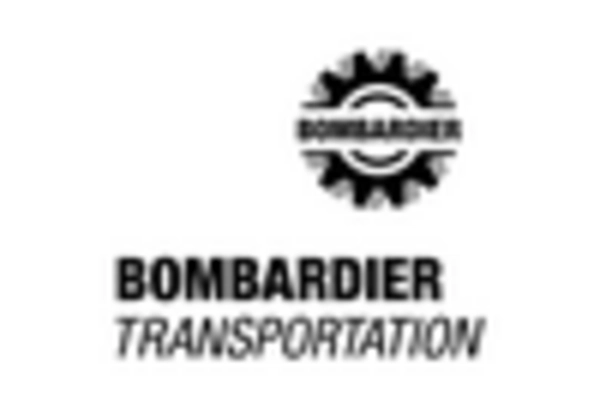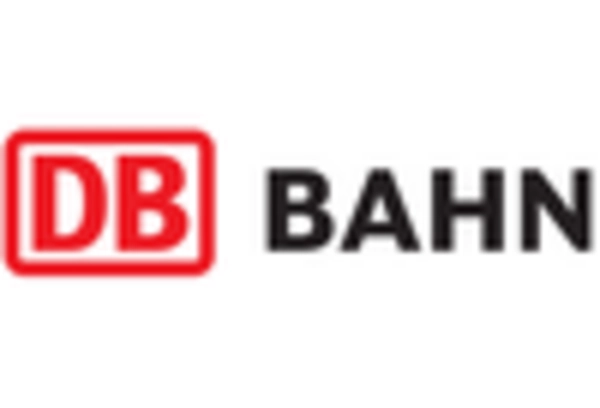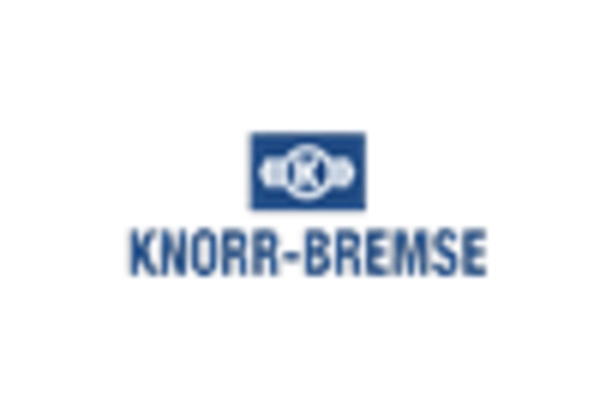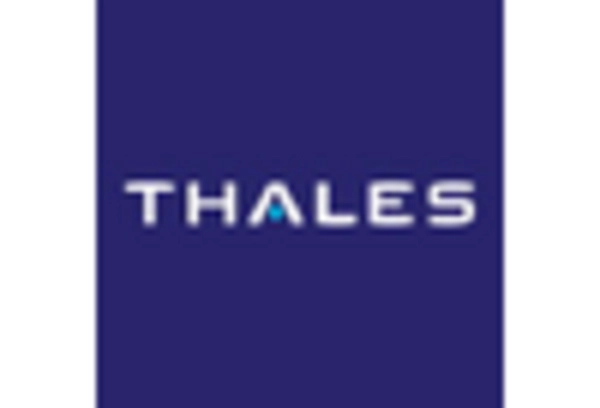Urbanization and Population Growth
Urbanization and population growth are driving factors for the Germany Smart Railways Market. As cities expand and populations increase, the demand for efficient public transportation systems becomes more pronounced. Germany's urban areas are experiencing significant growth, with projections indicating that by 2030, over 80% of the population will reside in urban centers. This trend necessitates the development of smart rail solutions that can accommodate higher passenger volumes and reduce congestion. Investments in urban rail networks, such as the expansion of light rail and metro systems, are essential to meet this demand. The integration of smart technologies, such as real-time passenger information systems, will further enhance the user experience, making rail travel a more attractive option for urban commuters. Thus, urbanization and population growth are pivotal in shaping the future of the Germany Smart Railways Market.
Government Investment in Infrastructure
The German government has been actively investing in the modernization of its railway infrastructure, which is a crucial driver for the Germany Smart Railways Market. With a commitment to allocate over 86 billion euros for rail infrastructure improvements by 2030, this investment aims to enhance efficiency and sustainability. The focus on upgrading existing rail lines and introducing smart technologies is expected to significantly reduce travel times and improve service reliability. Furthermore, the integration of digital solutions into rail operations is likely to attract more passengers, thereby increasing ridership and revenue. This government initiative not only supports economic growth but also aligns with Germany's broader environmental goals, making it a pivotal factor in the evolution of the Germany Smart Railways Market.
Technological Advancements in Rail Systems
Technological advancements play a vital role in shaping the Germany Smart Railways Market. Innovations such as the implementation of the European Train Control System (ETCS) and the development of automated train operations are transforming traditional rail systems into smart networks. These technologies enhance safety, optimize train schedules, and improve overall operational efficiency. For instance, the introduction of predictive maintenance systems allows for real-time monitoring of train conditions, reducing downtime and maintenance costs. As these technologies become more prevalent, they are expected to drive significant growth in the market, with projections indicating a compound annual growth rate of over 5% in the coming years. This technological evolution is essential for maintaining Germany's competitive edge in the global rail industry.
Growing Demand for Sustainable Transportation
The increasing demand for sustainable transportation solutions is a key driver for the Germany Smart Railways Market. As environmental concerns rise, more passengers are seeking eco-friendly travel options. The German railway sector is responding by implementing green technologies, such as electrification of rail lines and the use of hydrogen fuel cells. This shift not only reduces carbon emissions but also aligns with Germany's ambitious climate targets, which aim for a 55% reduction in greenhouse gas emissions by 2030. The integration of sustainable practices in rail operations is likely to attract environmentally conscious consumers, thereby boosting ridership and enhancing the overall appeal of the rail network. Consequently, this growing demand for sustainable transportation is expected to significantly influence the trajectory of the Germany Smart Railways Market.
Public-Private Partnerships in Rail Development
Public-private partnerships (PPPs) are emerging as a significant driver for the Germany Smart Railways Market. These collaborations between government entities and private companies facilitate the sharing of resources, expertise, and investment in rail infrastructure projects. By leveraging private sector innovation and efficiency, Germany can accelerate the development of smart rail solutions. Recent initiatives have seen successful PPPs in the construction and operation of high-speed rail lines, which have improved connectivity and reduced travel times. Furthermore, these partnerships can enhance funding opportunities, allowing for the implementation of advanced technologies and sustainable practices. As the demand for modern rail services continues to grow, the role of public-private partnerships is likely to expand, making them a crucial element in the evolution of the Germany Smart Railways Market.


